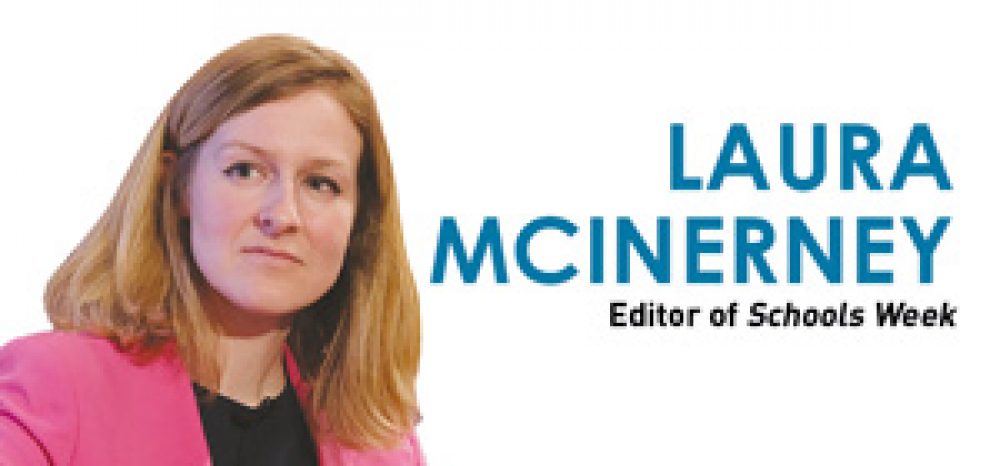Now the end of 2017 is near, I too face a final curtain. Dear readers, this is my last edition as editor of Schools Week.
It’s not a complete swansong from me, as I shall be continuing as a contributing editor: writing columns and popping up every now and then with a profile interview. But from the New Year I shall step down and Shane Mann will take over as interim Managing editor.
Three years ago this week I was called into the office and asked if I would take over the paper from its 14th edition (and the first with the ‘Schools Week’ title).
Since then this job has been an utter privilege. Working every day with a small group of incredibly bright, hard-working, determined reporters to get answers to the questions you wanted to have asked has been thrilling
We built the paper from nothing to its current status as a practical must-mention for MPs in parliamentary committees. We were laughed at for some of our ideas, and told by industry experts that we shouldn’t do profile interviews (“there aren’t enough interesting people in education”), or book reviews (“there aren’t enough books”), or write stories about regional commissioners (“no-one cares”), or multi-academy trusts (“it’s too personal, it’ll upset people”). And yet, three and a half years on, these things are commonplace across education media.
A Schools Week story will be what it always has been: determined, curious, smart
In some ways that’s why it’s now time to move on. Yesterday, the education secretary set out her vision for the next few years of education policy and it shows a real break with the past. The word “academy” is practically absent from the document. As one analogy I heard this week goes: if Michael Gove is the man who broke the windows of education policy, Justine Greening is the woman figuring out how to piece it back together again.
Likewise, Schools Week has shaken things up and, along the way, secured some great changes. I will forever be tickled that we were the first newspaper to publish a story on a leaked manifesto of a major political party during a general election. I will forever be proud of our reporting on the census data last year, which secured a change in the rules meaning that there are some children right now, whose parents would otherwise have taken them out and risked their safety by putting them into illegal schools, are still learning within state education.
But however proud I am of the past, it is time to start putting the windows back together and becoming a more grown-up paper.
Don’t worry! This doesn’t mean we will become safe. A Schools Week story will be what it always has been: determined, curious, smart. However, we also know we need to become slicker in our online presence to keep up with technological shifts, as well as updating the look and feel of the paper, all of which are things Shane is more adept at than me.
As for regrets, I have a few.
In the same way that no teacher ever finishes a lesson thinking they nailed everything perfectly, never once did I finish the paper thinking it was a supreme version of what might have been.
Small things niggle. Was the emphasis on that piece right? Did we use the quotes fairly? Sometimes, we messed up. Taking my cue from Jeremy Paxman, who took a handwritten apology letter to Peter Mandelson’s house after accidentally outing him on live television, I’ve even delivered my own notes when I’ve trodden over the line.
Why tell you this? Because I think it’s important to demonstrate that editors are not monsters. Journalists are only human. Like the people in our stories each week, we err and we struggle, and we don’t always get things right. That doesn’t make us bad people, and I’ve always implored our newsroom to remember that most people working in schools are not bad either. Everyone is doing their own version of trying to help the cause.
What I can also say, with some certainty, is that the support of incredible colleagues and people all across the sector means I’ve always felt able to speak my mind and do things my way. Much is said of the abuse journalists take; little is said of the enormous generosity that people also show.
So folks, in a week where Ofsted, Ofqual and the education secretary have all released huge datasets and policy documents, I’m now feeling guilty that I’ve spent 700-odd words talking about our paper rather than analysing what they said. But, the truth is, you don’t need me.
The information is all there in the news pages, just like it will be in the next edition. The determined, fearless part of Schools Week has never been me. It has always been you: the reporters, the design team who pushed me to take risks with the front pages, the bosses who put their money into this endeavour in the first place, and the readers who sign up for and regularly read this zany, challenging newspaper.
Happy Christmas, you lovely people. It has been quite the ride.
https://www.youtube.com/watch?v=ZgH5_D7rf5s








Thank you, Laura, and best of luck for the future. Schools Week has shown the broadsheets how edu-journalism is done!